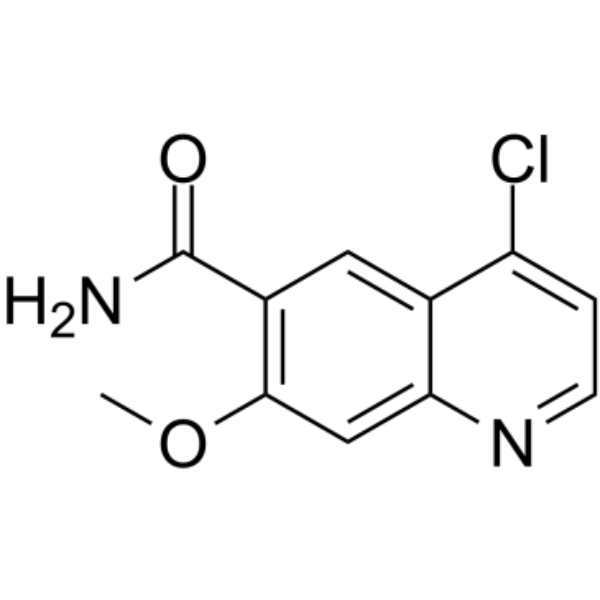4-Chloro-7-Methoxyquinoline-6-Carboxamide CAS 417721-36-9 Purity >98.5% (HPLC) Lenvatinib Mesylate Intermediate Factory
Ruifu Chemical Supply Lenvatinib Mesylate Intermediates With High Purity
Lenvatinib Mesylate CAS 857890-39-2
4-Chloro-7-Methoxyquinoline-6-Carboxamide CAS 417721-36-9
Desquinolinyl Lenvatinib; 1-(2-Chloro-4-Hydroxyphenyl)-3-Cyclopropylurea CAS 796848-79-8
Methyl 7-Methoxy-4-Oxo-1,4-Dihydroquinoline-6-Carboxylate CAS 205448-65-3
Methyl 4-Amino-2-Methoxybenzoate CAS 27492-84-8
5-(Methoxymethylene)-2,2-Dimethyl-1,3-Dioxane-4,6-Dione CAS 15568-85-1
4-Amino-3-Chlorophenol CAS 17609-80-2
4-Amino-3-Chlorophenol Hydrochloride CAS 52671-64-4
Methyl 4-Chloro-7-Methoxyquinoline-6-Carboxylate CAS 205448-66-4
| Chemical Name | 4-Chloro-7-Methoxyquinoline-6-Carboxamide |
| Synonyms | 4-Chloro-7-Methoxy-6-Quinolinecarboxamide; Lenvatinib Impurity 12; Lenvatinib Impurity B; Lenvatinib Impurity LFS-B |
| CAS Number | 417721-36-9 |
| CAT Number | RF-PI1971 |
| Stock Status | In Stock, Production Capacity 50MT/Year |
| Molecular Formula | C11H9ClN2O2 |
| Molecular Weight | 236.65 |
| Melting Point | >205℃ (dec.) |
| Density | 1.380±0.060 g/cm3 |
| Brand | Ruifu Chemical |
| Item | Specifications |
| Appearance | Off-White to Light Yellow Powder |
| Purity / Analysis Method | >98.5% (HPLC) |
| Loss on Drying | <0.50% |
| Residue on Ignition | <0.50% |
| Total Impurities | <1.50% |
| Proton NMR Spectrum | Conforms to Structure |
| Test Standard | Enterprise Standard |
| Usage | Intermediate of Lenvatinib Mesylate (CAS: 857890-39-2) |
Package: Bottle, Aluminium foil bag, 25kg/Cardboard Drum, or according to customer's requirement
Storage Condition: Store in sealed containers at cool and dry place; Protect from light and moisture


4-Chloro-7-Methoxyquinoline-6-Carboxamide (CAS: 417721-36-9) is mainly used as an intermediate of Lenvatinib Mesylate (CAS: 857890-39-2). Developed by Eisai Inc., lenvatinib mesylate is a vascular endothelial growth factor receptor (VEGF) inhibitor which has activity against VEGF subtypes 1, 2, and 3 and was approved by the FDA in 2015 for the treatment of differentiated thyroid cancer that is either locally recurrent, metastatic, or progressive and did not respond to radioactive iodine treatment. In May 2016, the FDA approved the drug as a combination therapy with everolimus for the treatment of advanced renal cell carcinoma. Because VEGF (and fibroblast growth factor receptors, known as FGFRs) are thought to play a role in cardiovascular signaling pathways, VEGF2R and FGFR inhibition are thought to be the mechanisms behind the primary side effect of lenvatinib mesylate, which is hypertension.
-
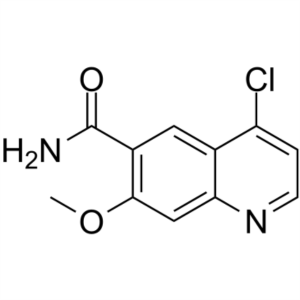
4-Chloro-7-Methoxyquinoline-6-Carboxamide CAS 4...
-
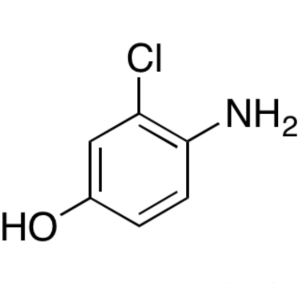
4-Amino-3-Chlorophenol CAS 17609-80-2 Lenvatini...
-
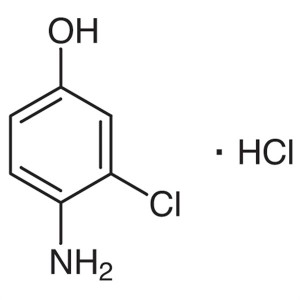
4-Amino-3-Chlorophenol Hydrochloride CAS 52671-...
-
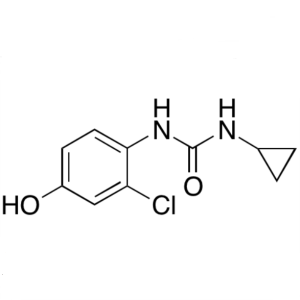
Desquinolinyl Lenvatinib CAS 796848-79-8 Purity...
-
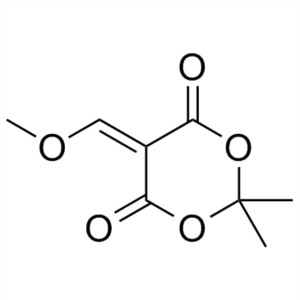
Lenvatinib Mesylate Intermediate CAS 15568-85-1...
-
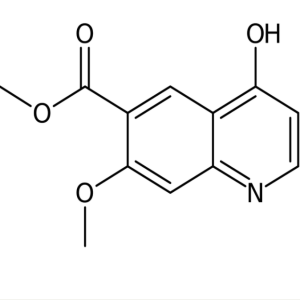
Lenvatinib Mesylate Intermediate CAS 205448-65-...
-
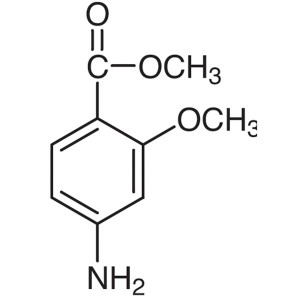
Methyl 4-Amino-2-Methoxybenzoate CAS 27492-84-8...
-
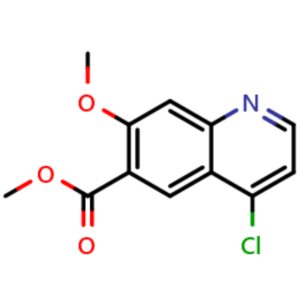
Methyl 4-Chloro-7-Methoxyquinoline-6-Carboxylat...
-
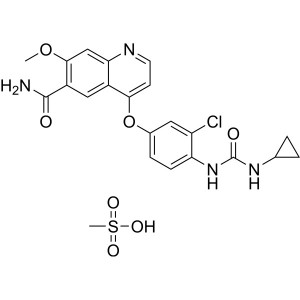
Lenvatinib Mesylate CAS 857890-39-2 Assay 98.0~...

